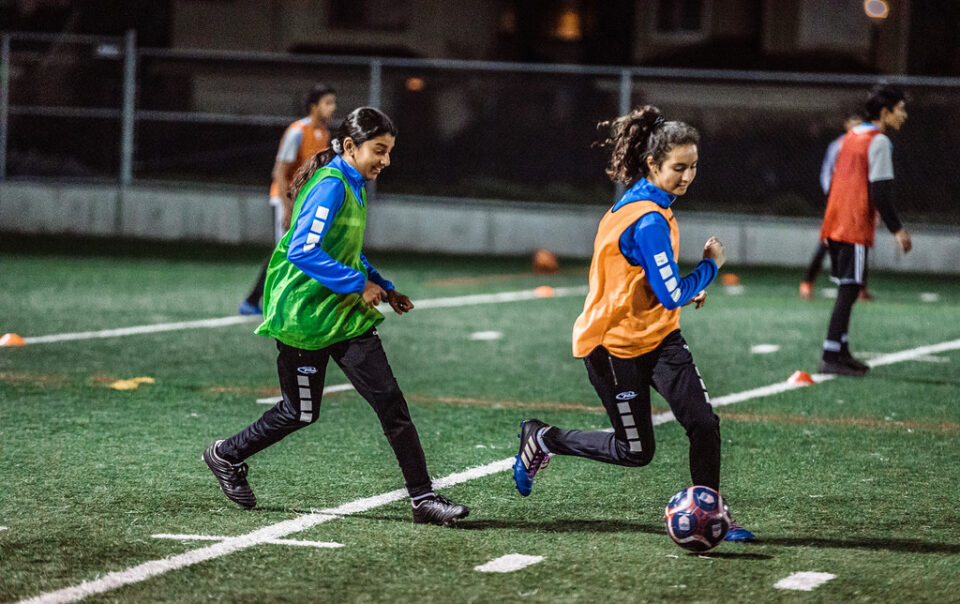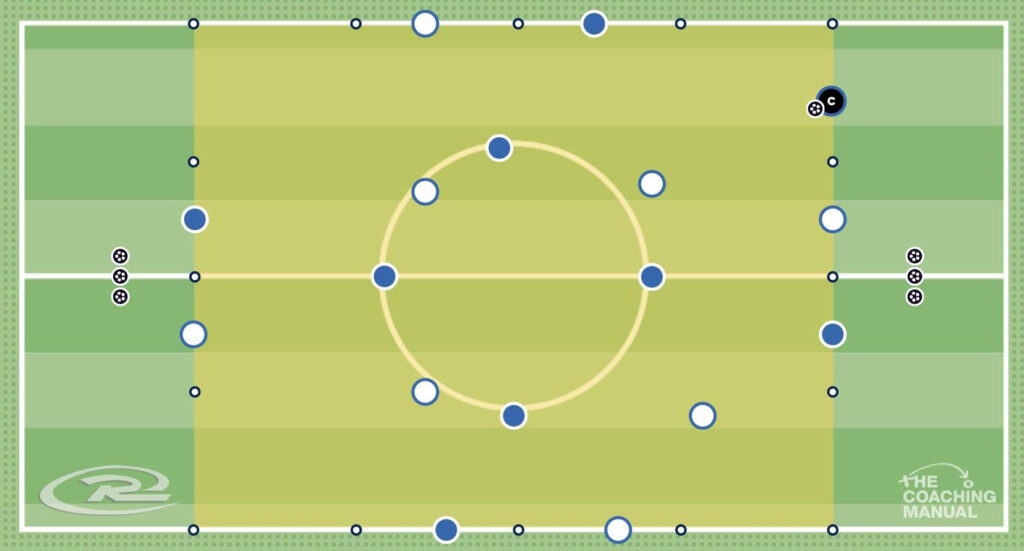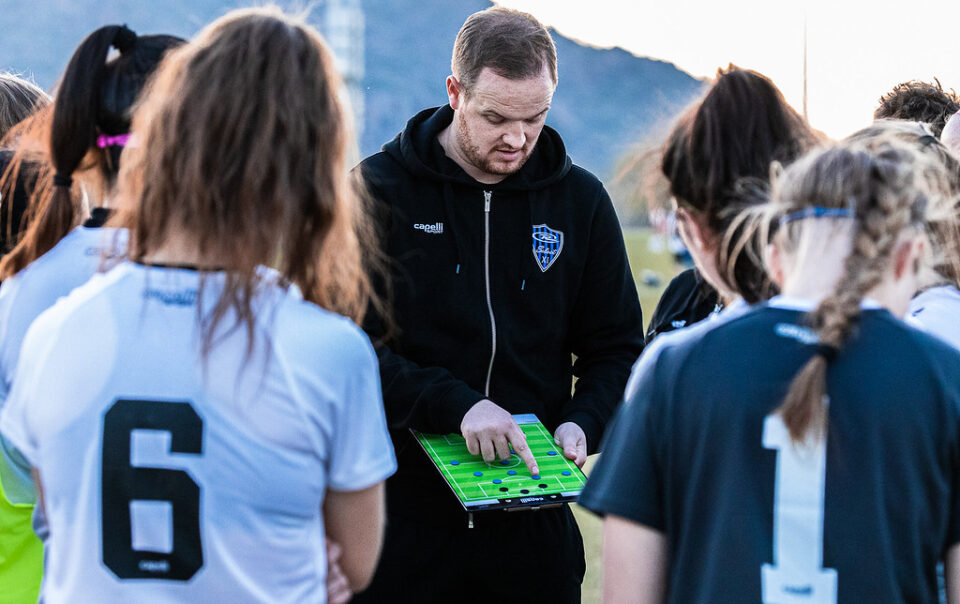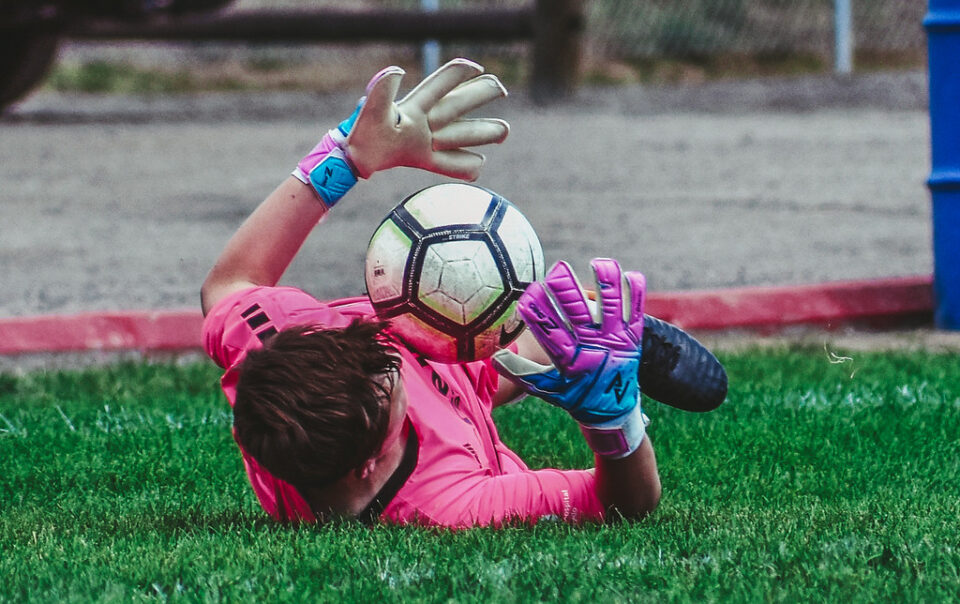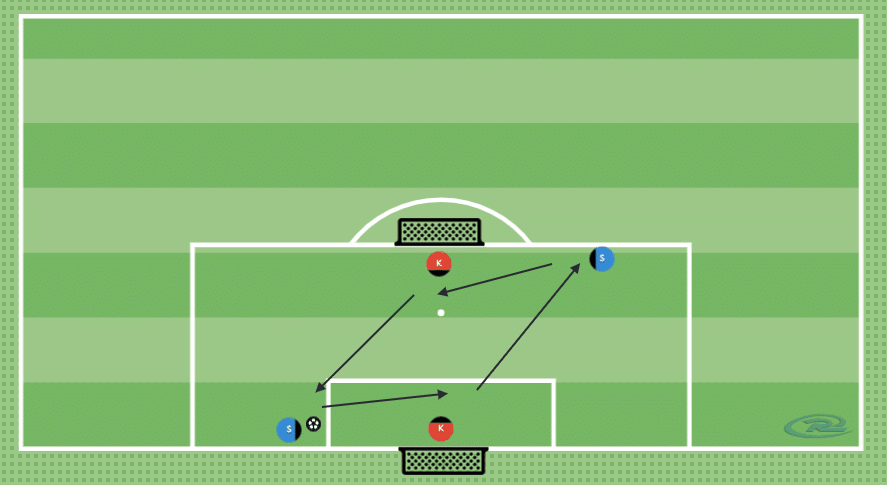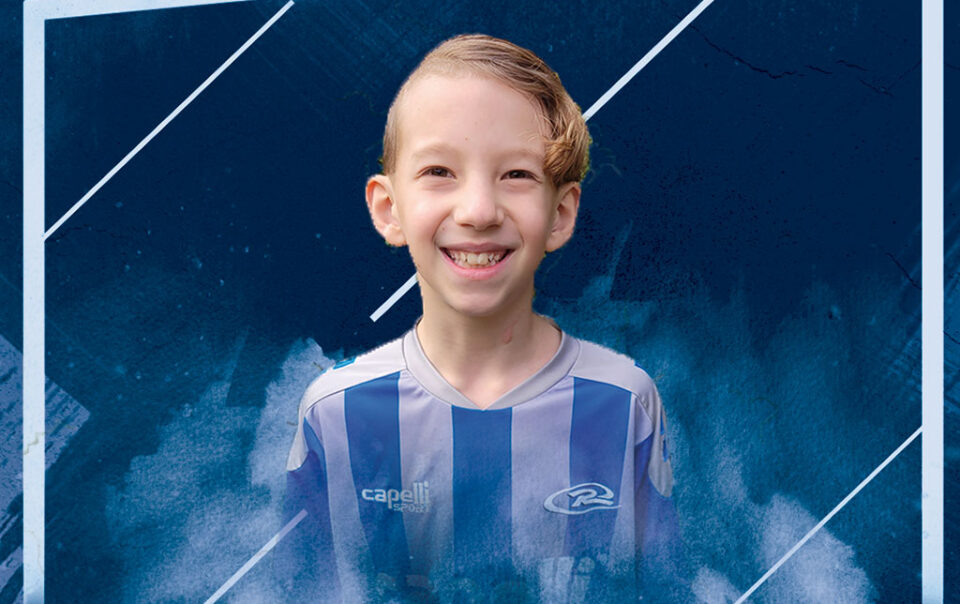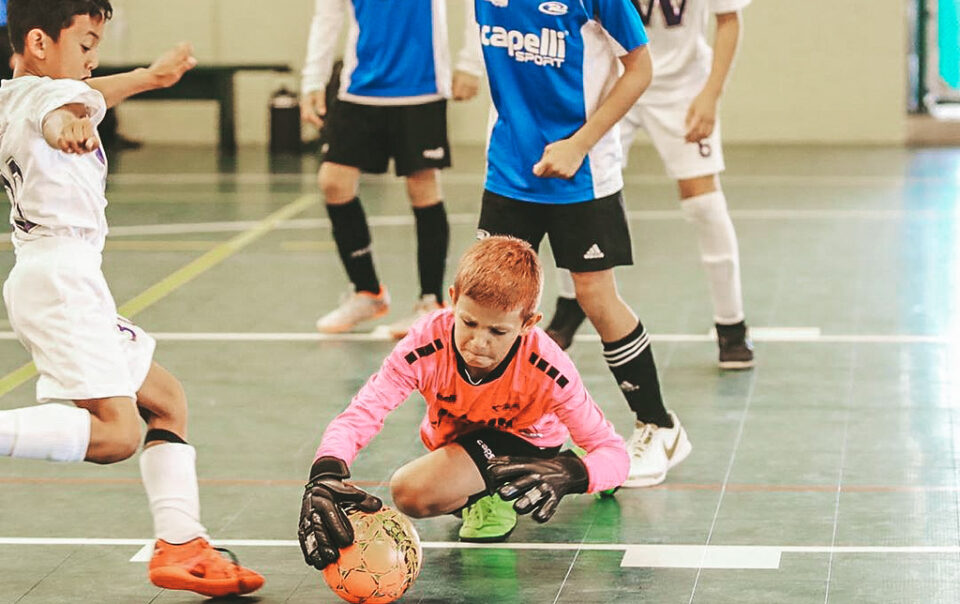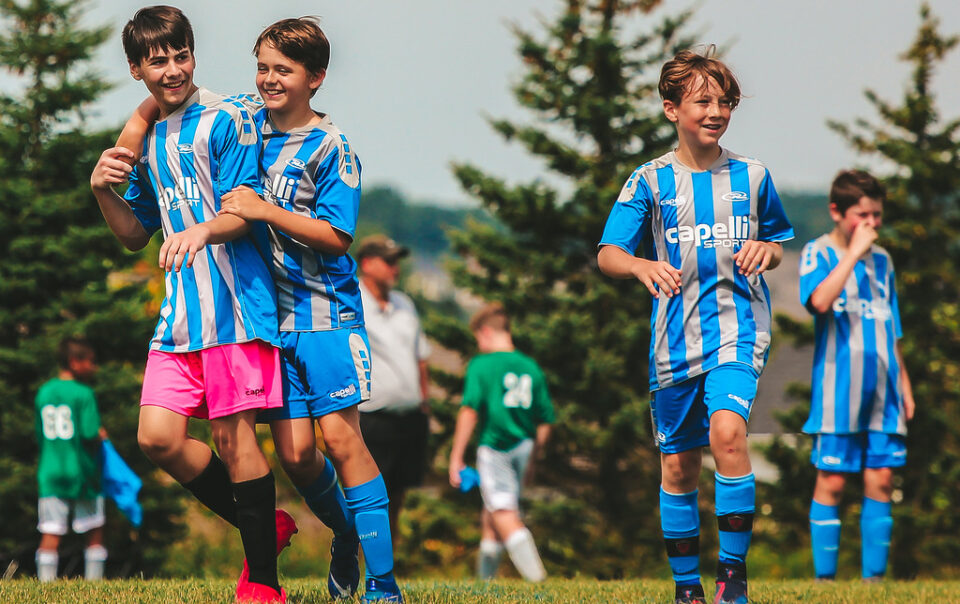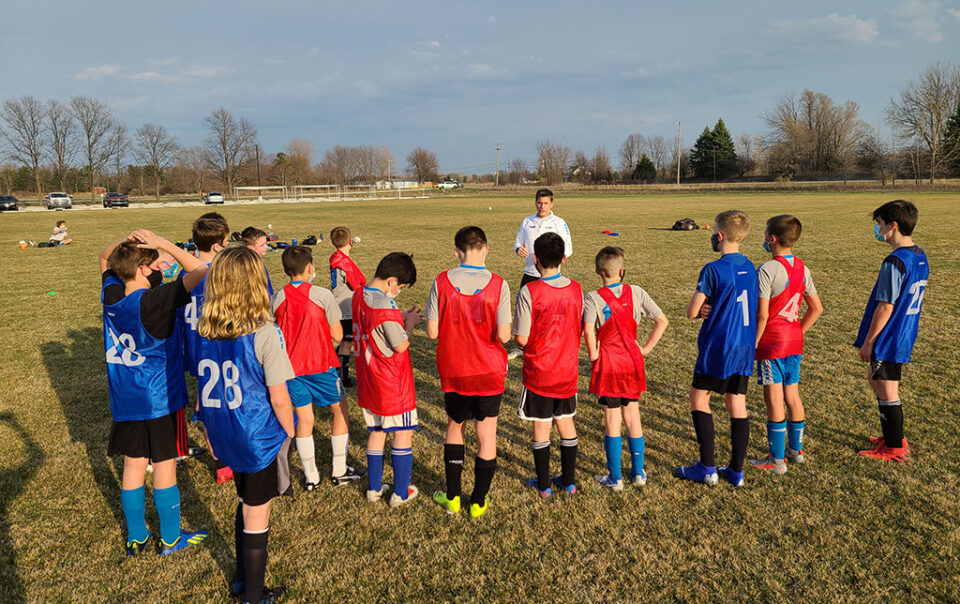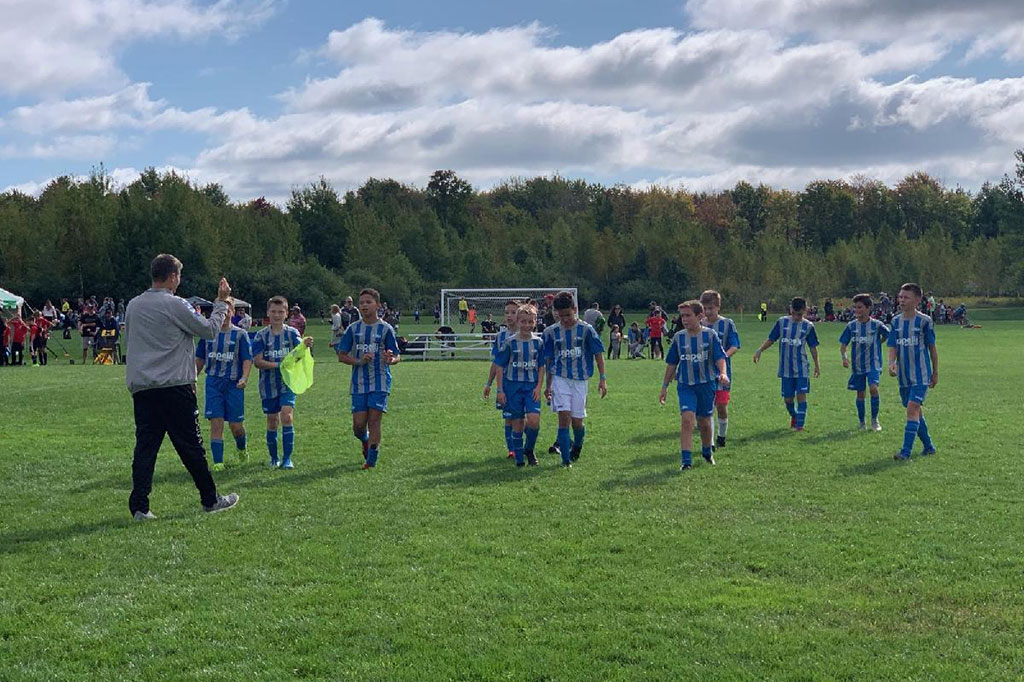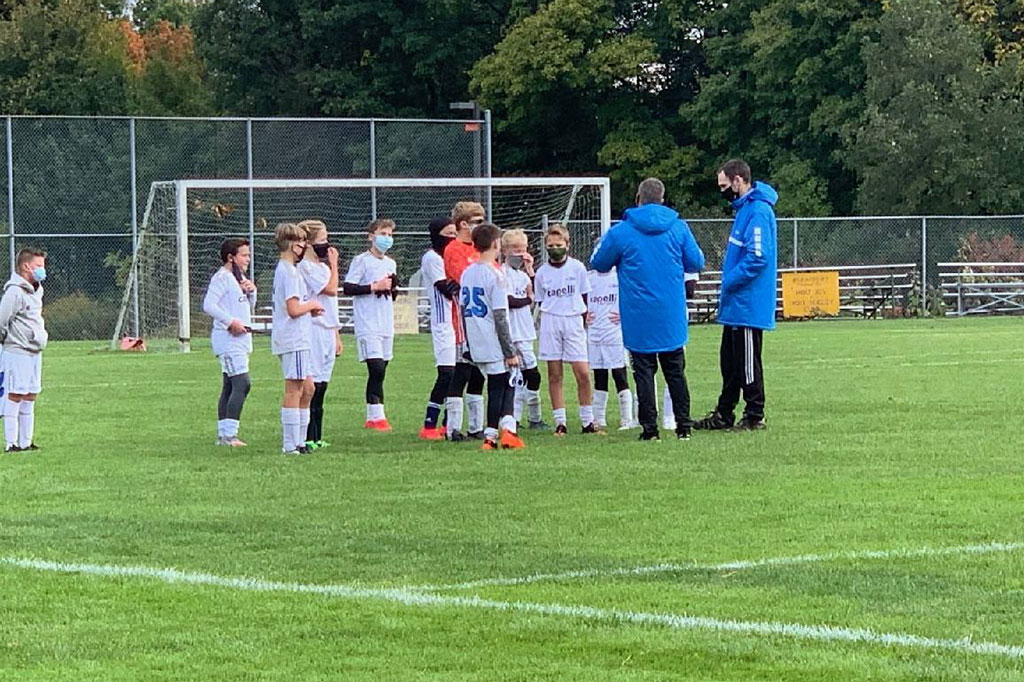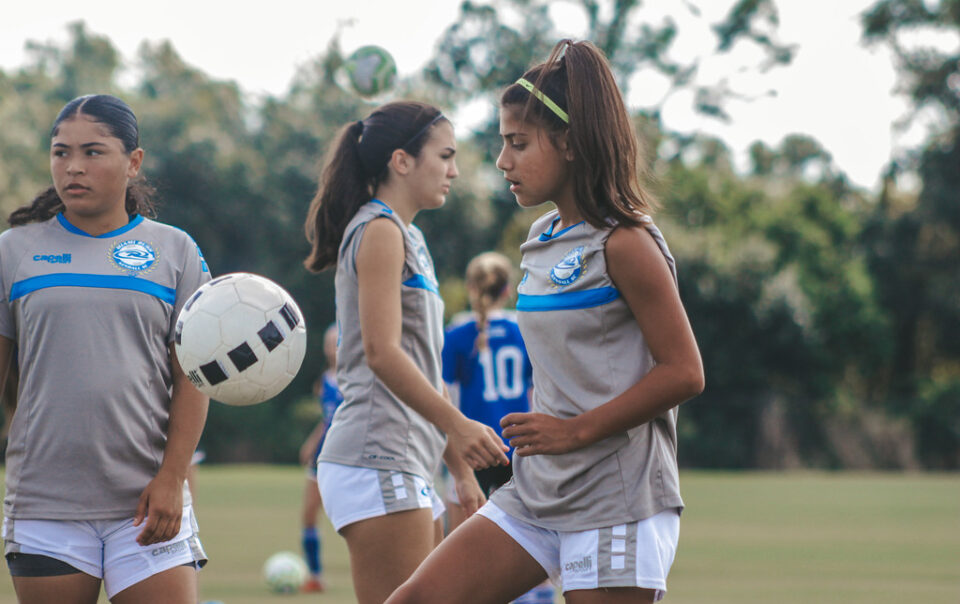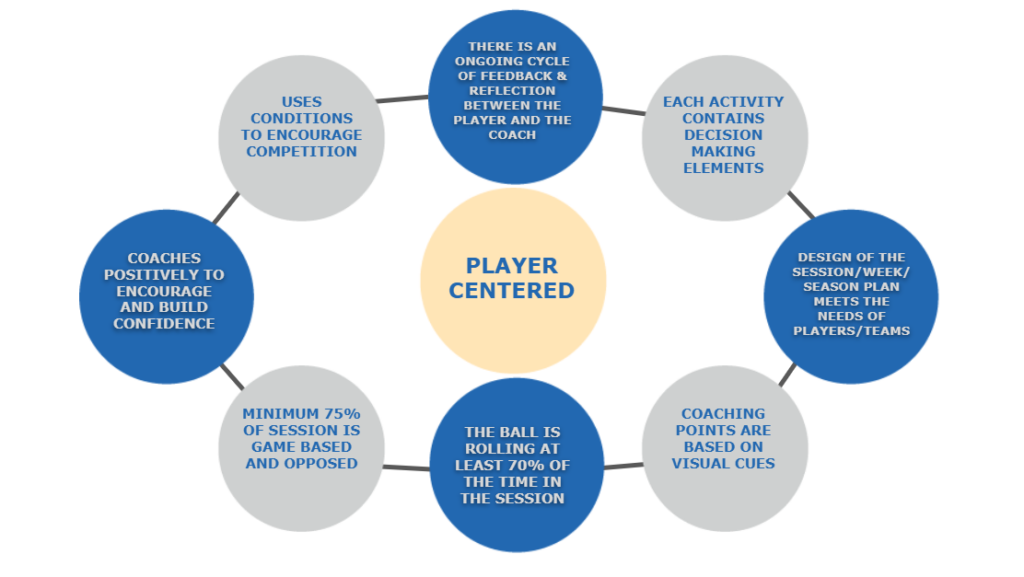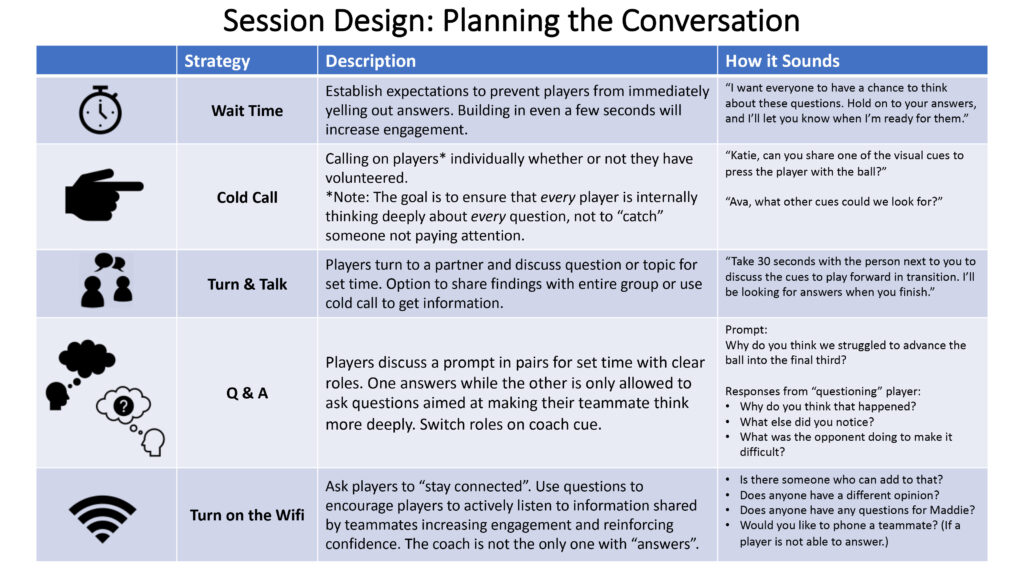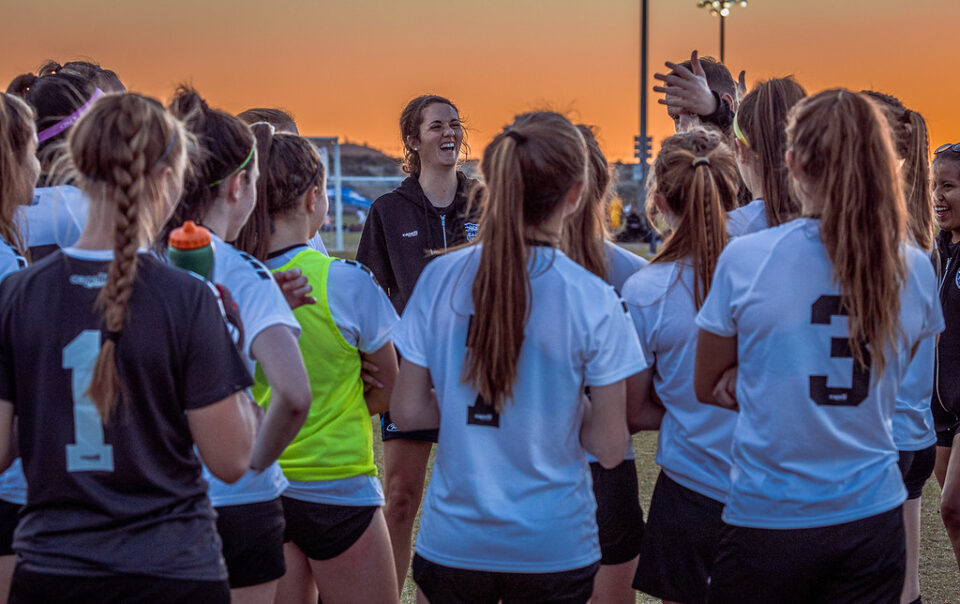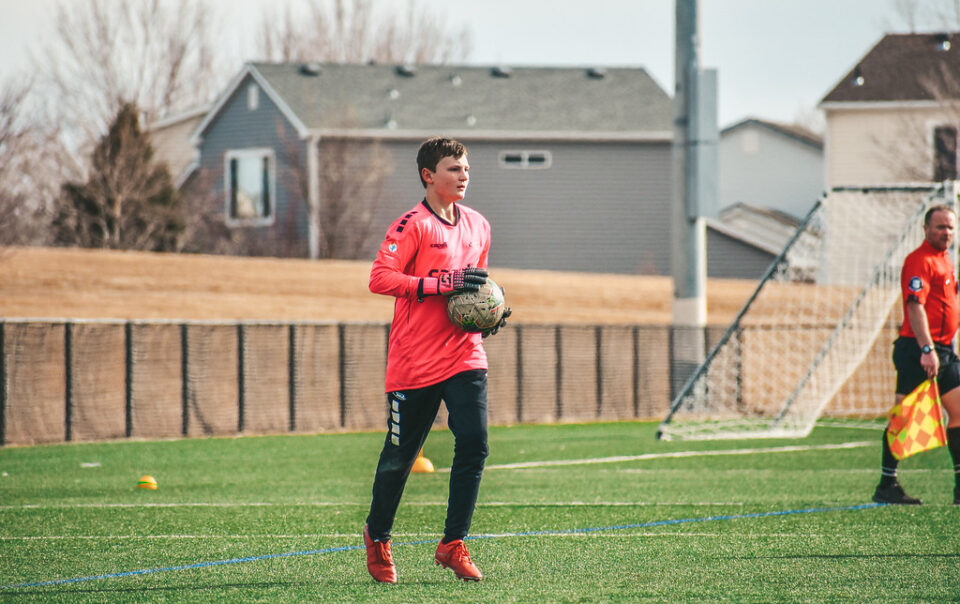As presented earlier, our objective during the month of May is to explain in depth the Rush Blue Thread element that refers to using visual cues in your coaching points. Find an example below, framed in a Youth Division activity.
This activity is part of the ‘Youth Division: (Global) Attacking – Progress: Mobility Off The Ball With A Focus In 3 Player Combinations’ Session and can be found at The Rush Coaching Manual!
OBJECTIVE
Improve your players awareness, engagement, and mobility when off the ball.
ORGANIZATION & DESCRIPTION
Using some cones to define a grid of 40 x 30 in midfield of a 9v9 field. The game is simple. Inside the grid we play a 4v4. Once in U13 you can limit the number of touches. Outside the grid, each team places four bumpers, distributed on each side of the square. The only rule is that when the ball is played to a bumper the player passing needs to alternate positions with the bumper, and the bumper joining the field players can’t pass it back to the same player. This simple rule will force the appearance of a third player to support play. Teams score by reaching 15 passes. Play in intervals of 7-8 minutes and give them water breaks.
Check how the Coaching Points presented in the activity are providing visual cues for the players. They respond to the question “What do I need to see?”
- Timing: Recognize the moment of the pass and the attraction to the ball as a trigger to ‘surprise’ a marking opponent by rapidly moving onto a new position. When do I move when marked? When my teammate on the ball raises his/her sight off the ball.
That’s the visual trigger. When my teammate on the ball raises his/her sight off the ball. My teammate controls the ball and naturally looks at it, but what happens next? He/she raises his/her sight. That’s the moment to move, to try to earn that half a second with an initial deceptive move, not before, not after. Timing is key.
- Support: Recognize situational cues to support to the ball or in depth depending on our teammate being marked or free to dribble forward. When supporting to the ball, adopt the right angle a couple yards behind the ball line.
Once again, there’s a visual trigger: The supporting player needs to quickly SEE if the teammate is marked to decide between supporting to the ball or in depth.
The Guided Questions presented on the activity are also directed towards presenting these visual cues. Check how the second one is specifically phrased:
- What are the cues we need to recognize to either support to the ball or in depth? Check to the ball (behind the ball line) if our teammate is immediately marked and in depth or away if he/she has space to dribble the ball forward.
Find the Guided Q&A, Practice Animation and Additional Notes HERE!
You don’t have a user yet? Request your free user HERE.


